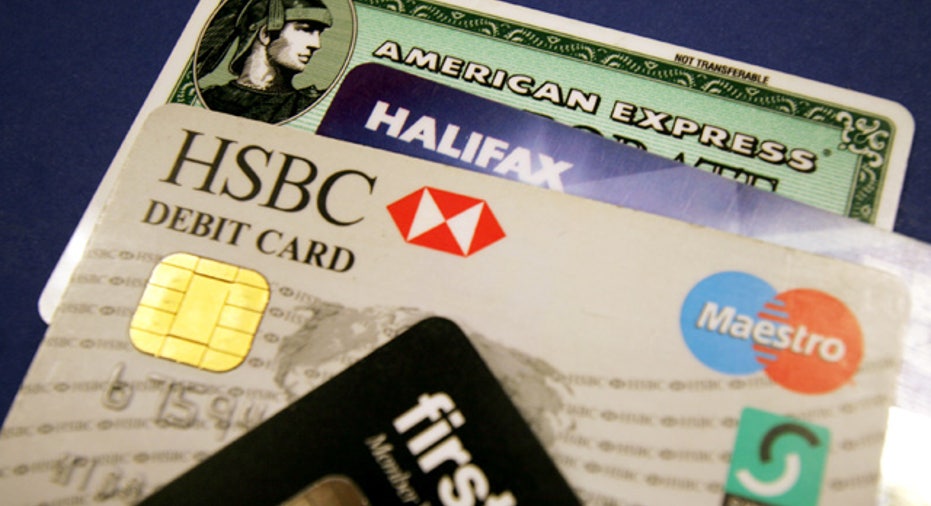6 Types of Purchases You Should Always Charge on Your Credit Card

Two of the most common features that consumers consider when they use a credit card are the interest rates and rewards.
For Greg McFarlane, author of "Control Your Cash: Making Money Make Sense," the most important feature of all is one that few people even recognize: "The main thing I care about as a consumer is the protection a credit card gives me," he says.
From travel insurance to fraud protection, these little-known credit card services can be worth thousands of dollars over the life of a card for those who spend the time to take advantage of them. "People don't usually take the time to read the information that's sent to them, and it's not what they're thinking about when they get a card," says Carrie Coghill, director of consumer education for FreeScore.com. "But the reality is that there are some good reasons to use a credit card, as long as you follow a few rules."
Just as there are some items you should never charge on a credit card, there are some you should -- that is, when you have the cash to pay a balance on time and in full. Because of key perks and protections embedded in many cards, you'll get what you pay for -- and then some.
1. Big-ticket itemsFrom computers to home appliances, major purchases are almost always worth putting on a credit card, says Coghill. "Not only can you typically get extended warranties over and above the original warranty offered, but some cards will give you price protection," she says. "If you find a lower price within 60 days, you can be reimbursed the difference." That can be a lifesaver if your fridge goes on the fritz and you need a new one immediately. You may not get the best price when you buy it, but putting it on a credit card means you can price shop at your leisure and still get the benefit.
2. Service provider purchasesIf you got new tile in your bathroom or new landscaping in your backyard, everything might have looked fine when it was installed and you paid for the service. But a week later, perhaps the grout is cracking or the shrubs have died. "If you paid with cash or a debit card, that money's already out the door," says McFarlane. "But if you pay with a credit card, the burden of proof is on the merchant to show that the work was done to your satisfaction." Because merchants who accept credit cards agree to the terms set by the card companies, the card company can exert serious leverage and charge back disputed purchases when one of its customers has been wronged.
3. Fragile or breakable itemsThat delicate vase was going to look gorgeous in your dining room -- before you tripped on a stair and smashed it to pieces. Your new laptop was going to change your life -- and then you dumped an entire cup of coffee on it. If you made the purchase on a credit card, you might not be out of luck, says Kim McGrigg, spokesperson for Money Management International, a national credit counseling agency. She also also writes the weekly Credit Cares Q&A column for CreditCards.com. "When a problem like this arises, people might think about contacting the store or the manufacturer," she says. "But in addition to these things, you should think about calling your credit card company." While you might only be able to recover a few hundred dollars in damages, it's certainly better than having to eat the entire cost yourself.
4. Travel expensesCredit cards shouldn't be used to buy a trip you can't afford, but if the money's in the bank, you can put almost every travel expense on your card and see extra perks. Many cards offer an array of travel services, from automatic travel accident insurance, car rental insurance and lost luggage insurance. "There are cards that will even reimburse you for essentials if your luggage is delayed or if things are stolen from your hotel room," Coghill says.
5. Automatically recurring purchasesFrom gym memberships to cable packages to credit monitoring services, it's easy to sign up for monthly expenses and then find that you're not taking advantage of them. Sometimes it's easy to get taken off of subscriber rolls, but other times you'll need to get tough. "Some companies don't have the best reputation for customer service; they'll start automatic recurring payments but won't stop. Paying by credit card offers a layer of protection between you and the biller," says Liz Weston, author of "The 10 Commandments of Money." If a call to the primary company won't stop the payments, a call to your credit card company will.
6. PayPal purchasesWhen you sign up for PayPal, the site will encourage you to pay sellers directly from your bank account, but that's not the wisest decision, says Weston. "The protections you get from those transactions are dictated by the method of payment you use," she says. "Transactions made using your bank accounts are governed by different federal regulations, which are inferior" to those of credit cards. Unplug your bank account from PayPal and make the credit card company as your middleman, and you'll have an easier time keeping your money in the bank if you're defrauded or need to dispute a purchase.
More from CreditCards.com:



















